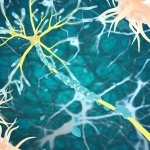Professor Joanne Kurtzberg is a world-renowned researcher based at Duke University. Her career has spanned decades and contains many pioneering medical landmarks: from the first cord blood transplant in the late 1980s, to her current research into the application of cord blood stem cells to treat cerebral palsy, autism, stroke, and more.
Joanne Kurtzberg is a leading figure in the industry, and arguably one of the most important women in medicine today. However, for someone who has made such an impact, it is surprising to discover that in her youth she never envisaged life as a doctor.
Prof. Kurtzberg grew up in New York. She had no plans for a career medicine and registered in a private college to study music. In order to fund her studies she began working with autistic children, and it was this time that would change the course of her life.
Prof. Kurtzberg was fascinated by the way that music helped autistic children to connect with their environment and the people around them and she decided to find out more about the condition. This led her to enroll at medical school where she began to learn about a relatively new area of research; stem cells from cord blood.
Over 35,000 cord blood transplants have taken place worldwide
From there, Professor Kurtzberg went on to take part in some of the most significant events in modern medicine, and since her involvement in the very first cord blood transplant in 1988 there have been over 35,000 cord blood transplants around the world.
Prof. Kurtzberg firmly believes that cord blood is providing miracles. It has enabled her to see wheelchair bound children walk for the first time and non-verbal children begin to speak and in her words “there is no other way to describe the things that are happening.”
Unfortunately, not every doctor realises the potential of cord blood and this is the cause of much frustration for the Professor. 32 years ago, when she was pregnant with her son, Prof. Kurtzberg’s gynaecologist dismissed cord blood banking as science fiction, and even today some gynaecologists remain ignorant of its benefits. As a result, these gynaecologists are reluctant to promote cord blood banking to women experiencing a normal pregnancy. This then has the knock on effect of parents missing out on the opportunity to store their baby’s cord blood because they perceive the procedure as a luxury. Addressing this the professor says “I am glad to see science is able to provide solutions for cases which used to be regarded as hopeless. I only hope that those who continue throwing umbilical cord blood into the garbage will realize that it’s a treasure.”
Professor Kurtzberg continues to advance the application of umbilical cord blood in medicine. Today her research utilises a cord blood transplant to treat children with cancer using a sibling’s stem cells as well treating grandparents who have suffered strokes with the umbilical cord blood of their grandchildren.
In addition, Prof. Kurtzberg is researching the application of a child’s own cord blood as a treatment for autism, bringing her working life full circle as she has the chance to help autistic children once again.
The research being conducted by Prof. Kurtzberg and her team is only possible because parents have had the foresight to choose cord blood banking for their children. These parents are, not only protecting their own children’s future, but they are also helping to advance the stem cell treatments available to all of us today and in the future.
Throughout her impressive career Prof. Kurtzberg has given so much to the field of medicine and her work has changed the lives of countless people. However, it is clear from the research she is conducting today that she still has much more to give.
You can read the original, fully translated interview with Prof. Kurtzberg at parentsguidecordblood.org. The interview was conducted by Smadar Shir for the Israeli newspaper Yediot Aharonot Saturday Supplement. The article, written in Hebrew, was translated by Tali Pelz.







